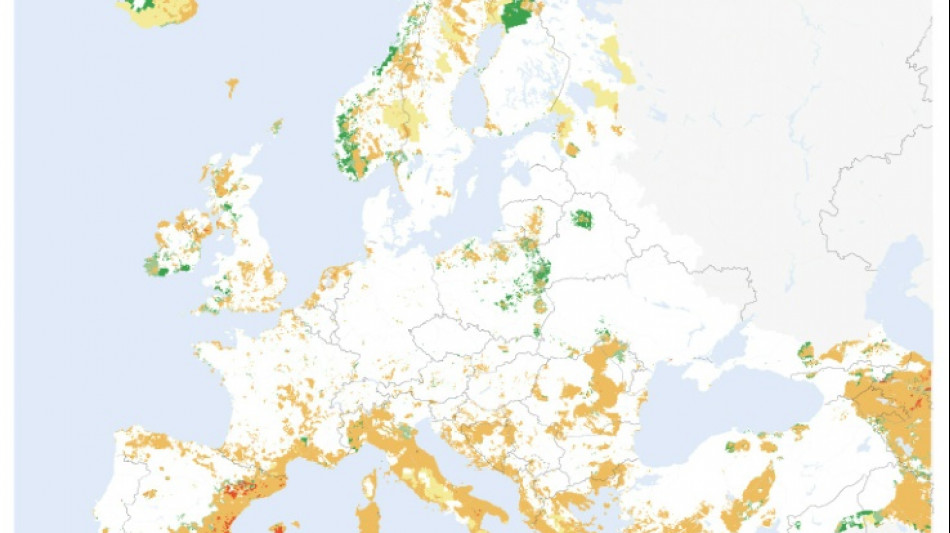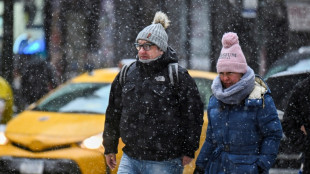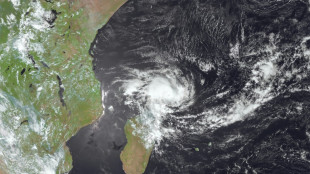

Winter drought grips southern Europe, northern Africa
Drought plaguing the Mediterranean has failed to recede over winter months that brought below-average rainfall, the EU's Copernicus Climate Change Service has reported, prompting water restrictions and state of emergency declarations.
Just over 45 percent of southern Europe suffered from soil drought, with 2.8 percent reaching the highest "alert" level, over the first 10 days of February, according to the latest data from the European Drought Observatory (EDO) analysed by AFP.
Meanwhile a quarter of all Europe and northern Africa is under drought conditions, according to Copernicus, with 19.3 percent of the region's soil at a "warning" level, meaning a moisture deficit is underway.
An alert level is impacting 2.5 percent of the region, meaning vegetation is growing abnormally due to the advanced stage of the drought, according to calculations by AFP.
The situation has worsened since the end of January, but has slightly improved compared with the same period last year that saw 31.3 percent of the territory under drought.
The western Mediterranean region has been particularly hard-hit, including southern Italy, Spain, northern Morocco, Algeria and Tunisia.
Warmer than usual seasonal temperatures are the culprit.
Last month was the warmest January on record globally, according to Copernicus, combined with a lack of precipitation that in some regions has lasted months, and even years.
Faced with "its worst drought in a century", according to Catalonia regional president Pere Aragones, a state of emergency was issued including new restrictions on water.
The regions reservoirs had fallen below the level of 16 percent.
Figures by Copernicus relate to soil dryness, visible by satellites, and not groundwater.
In France, the southern Pyrenees-Orientales region to the south faced "very worrying" levels of groundwater, its main reserve for drinking water, according to the organisation that monitors it.
The Italian island of Sicily declared a drought emergency at the beginning of February, while in Sardinia, farmers were slapped with restrictions on water use.
Morocco, where temperatures recently approached 37 degrees Celsius (98 degrees Fahrenheit), is experiencing its sixth consecutive year of drought.
The climate situation may not get any better.
The EDO has forecasted spring 2024 to be warmer than usual for Europe and the Mediterranean, which will compound a shortfall in snow over several mountain ranges that are responsible for recharging rivers over the coming months.
C.Queeney--NG



